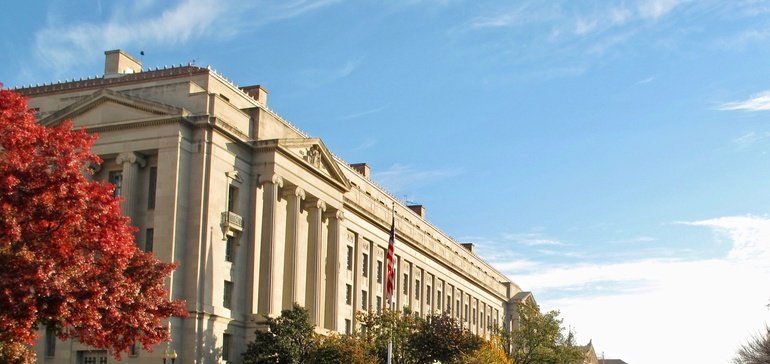
Dive Brief:
- West Virginia’s oldest hospital has agreed to pay $ 50 million to settle allegations it systematically violated laws against physician kickbacks and improper referrals, and billed the government for the claims.
- The U.S. Department of Justice alleges that Wheeling Hospital, under the direction of its old management R&V Associates Ltd. and Ronald Violi, paid physicians well above market value for referring patients to the facility — in some cases more than $ 1 million a year — from 2007 to 2020. Submitting claims for the improper treatments and services defrauded Medicare of “tens of millions of dollars,” according to the original complaint filed in 2017.
- The settlement stems from a whistleblower suit brought by Wheeling’s former executive vice president, Louis Longo, who will receive $ 10 million of the settlement under the False Claims Act, which allows whistleblowers to share in the proceeds of a suit.
Dive Insight:
Wheeling, a 223-bed nonprofit, acute care hospital founded in 1850 that serves West Virginia’s Northern Panhandle, Eastern Ohio and parts of Pennsylvania, is the latest facility to be dinged by the DOJ for fraud.
The hospital, which has several subsidiaries and a physician network, faced a dire financial situation in the 2000s, having lost more than $ 50 million from operations between 1998 and 2005, according to the 2017 complaint.
In a bid to spearhead a financial turnaround, Wheeling retained business consulting firm R&V Associates in 2006. The firm, owned and run partially by Violi, took over operations at Wheeling, appointing Violi as CEO that year and steadily turning Wheeling into a profitable company. By 2016, Wheeling was earning annual profit of almost $ 36 million.
However, several of the new business strategies were illegal, DOJ says. Wheeling did focus on paring down expenses and streamlining revenue collection, but the hospital also aggressively pursued new contracts with physicians to swell its market share and revenue, resulting in snowballing referrals to the hospital.
The Physician Self-Referral or Stark Law bans providers from referring patients for referring services paid for by a government payer to an entity with which they have a financial relationship. The Anti-Kickback Statute forbids paying or incentivizing physicians for referring patients for treatments or services covered by federal payer programs.
Both laws have resulted in a barrage of DOJ lawsuits and been a thorn in the side of providers for decades. Critical physicians say they’re outdated and hamstring efforts to manage patient care across multiple sites and episodes, holding back value-based arrangements.
Proponents of the regulations, however, note they’re an important check against fraud and abuse. Almost 90% of the $ 3 billion recovered by the federal government last year from fraud and false claims came from the healthcare industry. An update to the regulations is in the works, but the deadline for submitting the final rule with changes was postponed from last month to next August.
At Wheeling, Violi was the “driving force” behind the improper compensation arrangements, aimed at “gaining monopolistic power” to give the hospital more bargaining power with insurers, per the complaint.
Wheeling Hospital knew the salaries it was paying certain physicians with high patient volumes were excessive, and it would lose money on some of their practices. However, defendants tracked downstream revenue generated by the physicians’ referrals, and decided the inflated salaries and losses were justified because of the lucrative referrals they generated, the complaint alleges.
For example, Wheeling employed Chandra Swamy, one of the highest revenue generating OB/GYNs in the region, in 2009. Under the contract, Wheeling paid Swamy between $ 1 million and $ 1.27 million annually for seven years. By comparison, the median OB/GYN’s salary in 2012 was just $ 282,645, and the 90th percentile was $ 492,321, according to the Medical Group Management Association. Though Swamy’s practice lost the hospital money, Wheeling retained it because it generated huge downstream revenue in patient referrals — some $ 8.5 million in hospital charges in 2012.
Longo was Wheeling’s EVP, with access to its financial information, from November 2011 through August 2015 and was intended to eventually succeed Violi as CEO. He was fired in 2015, allegedly for raising concerns about the fraudulent payments, before filing his whistleblower lawsuit two years later. The DOJ joined the suit in March 2019.
Since the suit was filed, Wheeling has entered into a new management contract with West Virginia University Health System and appointed a new CEO, Douglass Harrison. In a statement, Harrison said the settlement was “in the best interest of the long-term viability of the hospital” and noted there was no admission of wrongdoing.
